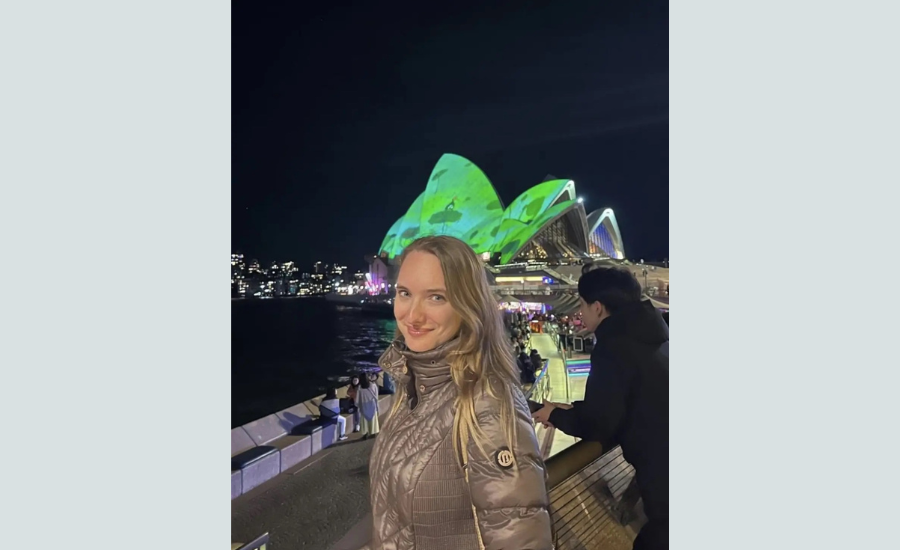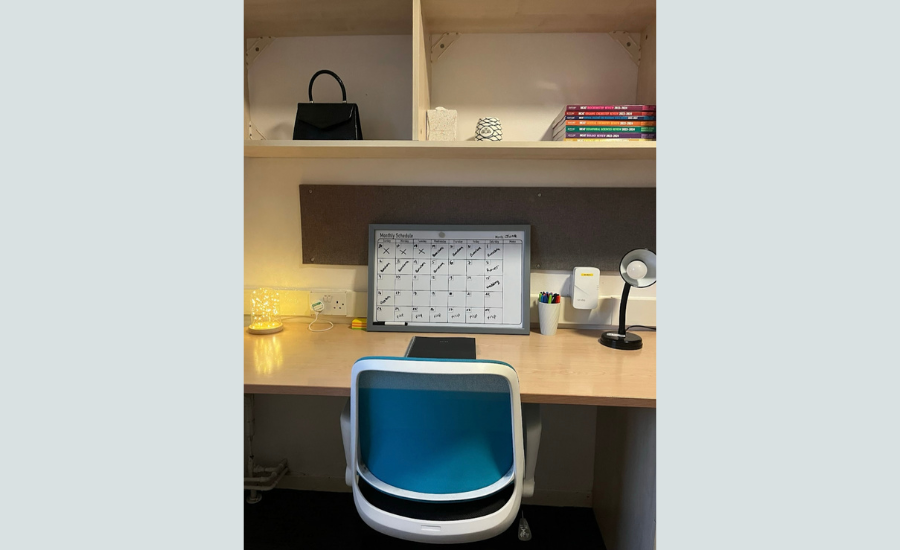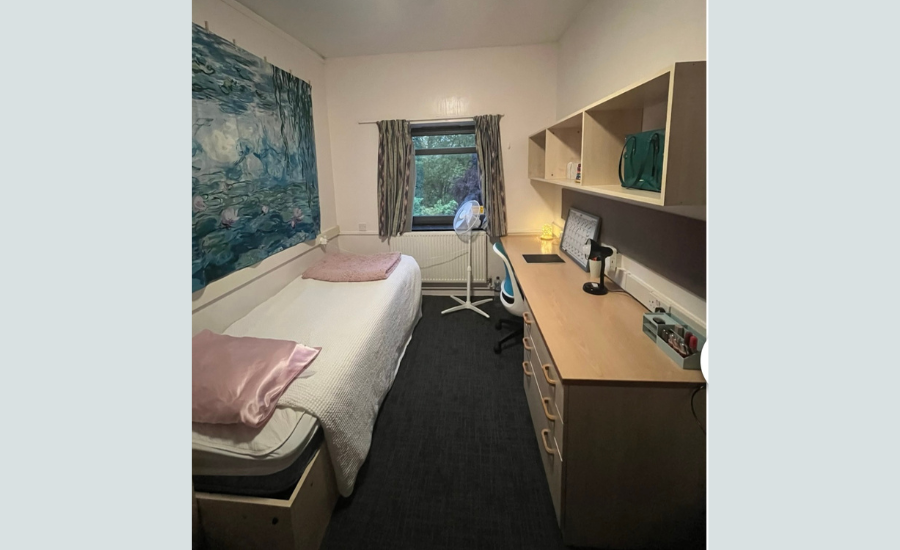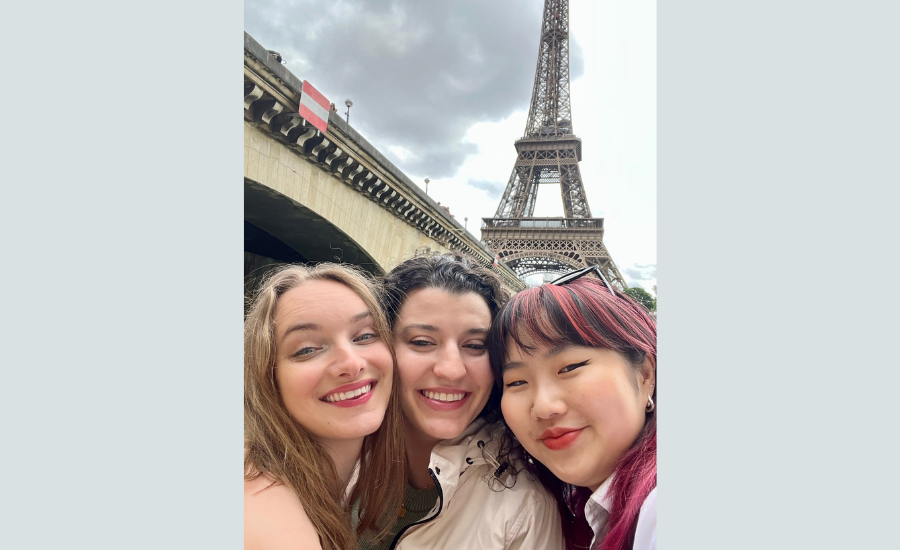Moving to London: 5 steps to get yourself settled in London as an international student
6 June 2024 London School of Hygiene & Tropical Medicine London School of Hygiene & Tropical Medicine https://lshtm.ac.uk/themes/custom/lshtm/images/lshtm-logo-black.png
This was me right before I left Sydney for London.
Hi! My name is Emma, and I’m a Canadian national studying the MSc Public Health at the London School of Hygiene and Tropical Medicine. I moved to London from Sydney, Australia in September 2023 to complete my degree, and while the transition was exciting, it was definitely still challenging at times. I’m hoping to share my experience moving to London to help future international students with their upcoming journey!
Step 1: The visa application
In my opinion, this is the most critical step of the moving process. To avoid potential delays and setbacks, I recommend beginning this process as quickly as possible. The visa application process is two-fold:
- Applying for a Confirmation of Acceptance for Studies (CAS) number. All international LSHTM students will first need a CAS number granted by the School. In order to receive your CAS number, you will need to send a CAS request form and supplementary documentation to casrequests@lshtm.ac.uk. It will take approximately 10 working days to receive your CAS number after submitting your application, assuming that you have met all the criteria for a student visa. Feel free to email casrequests@lshtm.ac.uk for more information.
- Applying for a Student Visa. Once you have received your CAS number, you will need to apply for a student visa with United Kingdom Visas and Immigration (UKVI). If you are applying from outside the United Kingdom, you will usually receive a decision on your application within 3 weeks (however, in the case of emergencies, ultra priority services are available at an extra cost). Keep in mind that, depends on your nationally, you may need to go to a visa office to physically hand over your passport, and you may not be able to get it back until a decision has been made.
Step 2: The housing search
Once you have received your student visa, it’s time to begin searching for accommodation in London. You will typically have two housing options:
- Student Accommodation. University of London provides numerous housing options for both its undergraduate and graduate students, including International Hall, Garden Halls and Handel Mansions. These housing options are typically closer to campus than private options, but are typically more expensive.
- Private Accommodation. You also have the option of finding your own accommodation independently from the School. If you decide to go this route, I recommend reaching out to other LSHTM students on Discord and searching for a flat together on SpareRoom, Rightmove or Zoopla. Bear in mind that the farther you live from campus, although you may be saving in rent, you will ultimately have to pay more in transportation costs.
I opted for student housing about seven minutes away from LSHTM, and have ultimately been quite happy with my decision! Do check out this quick guide to finding accommodation.
Step 3: packing
In the weeks leading up to your arrival in London, you should begin packing. It’s important to remember that you can buy a lot of what you need in London, especially if you don’t want to spend money on adding extra baggage to your flight. I only brought one checked bag and one carry-on bag from Sydney to London, and bought the majority of my essential items once I landed.
What I packed from Sydney:
Important Documents
- Passport (with student visa inside)
- Birth Certificate
- Driver’s Licence
- Immunisation Record
- LSHTM Acceptance Letter
Technology
- Mobile Phone
- Laptop
Clothing
The UK has four seasons: autumn, winter, spring and summer. I therefore made sure I had clothing that would be fitting for every possible UK weather event, but rightfully prioritised rainy days (e.g. rain jacket, rain boots and umbrella).
What I bought in London:
Bedding
- Mattress Topper
- Bed Sheets
- Duvet
- Duvet Cover
- Throw Blanket
- Pillows
- Pillow Cases
- Air Mattress (for guests)
I purchased everything from Argos, a British catalogue retailer. I browsed their website beforehand to snag the best possible deals, then “Clicked & Collected” from the Argos store.
Toiletries
- Shampoo
- Condition
- Body Wash
- Toothbrush
- Toothpaste
I bought all my products from Boots, a popular UK health and beauty retailer.
If you’re living in a private accommodation without catering, I would purchase all kitchen supplies from Argos or Facebook Marketplace. Check out this guide about where to buy the essentials.
Step 4: Final administrative tasks
After you arrive in London, there are still a few things you need to do before you can embark on your educational journey. The two most important tasks include opening a UK bank account and registering with a general practitioner (GP). I bank with HSBC and registered with Gower Street Medical Practice (next door to LSHTM) and have yet to have any issues with either.
Step 5: Settling in
Depending on where you’re from, you might experience a bit of culture shock moving to London. Even as a Canadian of British heritage, there have been times in the UK when I’ve felt like a fish out of water.
My best advice for managing culture shock is two-fold: make friends with British students in your course who can talk you through the various social and cultural norms; and maintain relationships with people from your own region or country who can help you navigate this new experience.
Extra dos and dont’s
Do buy an electric socket adaptor before you leave. I bought one from Amazon a few weeks before I left, to prevent landing in the UK with a dead phone and laptop.
Don’t forget to buy travel insurance. Remember that you’re travelling a long distance with some of your most valuable belongings. Make sure that you’re covered in the case that your airline loses your luggage (this actually happened to me on my connection between Copenhagen and London, so it is possible).
Don’t get a SIM card until you arrive in the UK. Give yourself time to find a carrier that works for you and is within your budget.
Conclusion
Although it initially seemed daunting, moving to London was one of the best decisions I’ve ever made. I hope this advice has been helpful, and if you have anymore questions, please do not hesitate to reach out to me.
- Contact Emma via our contact student ambassador page.
- Discover MSc Public Health.
- There are loads to go through as you prepare to come to London, our new student information pages are here to guide you through.
- Look forward to life in London: Read 7 places to go in London for free - Kaitlin's picks & Annalise's 4 must-go green spaces in London


